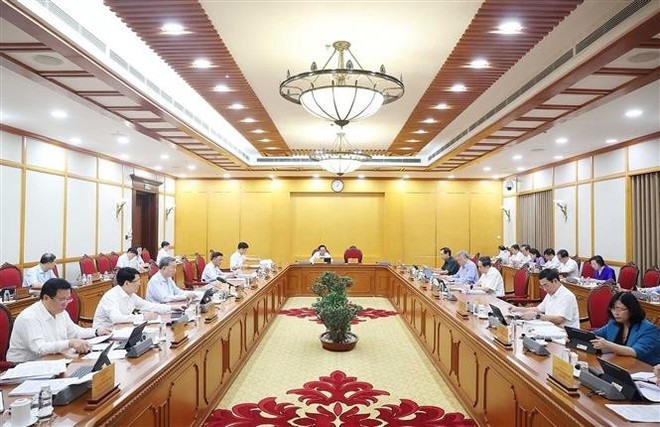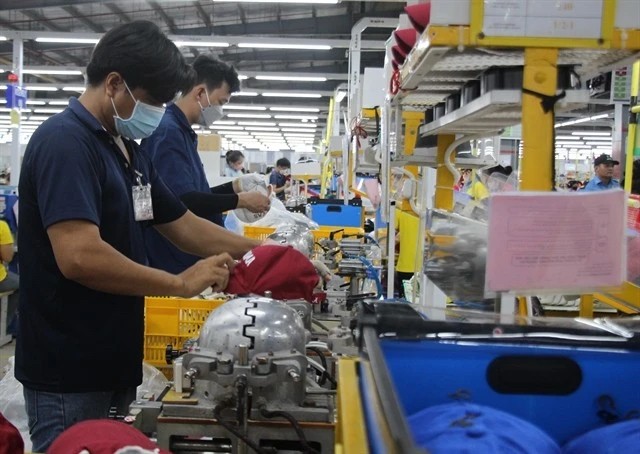The mushroom farming social enterprise run by women in Thai Binh
“We tend to work with boutique restaurants, directly with the chefs – they’re the ones that make the order with us and so they can personally come and see the quality of the mushrooms.” Meet Tran Thi Khanh Trang, the mushroom mastermind with a concept so hot you could throw an egg at it and have it fried and edible in under 20 seconds.
Returning back to her native Vietnam in 2013, Tran brought the full expertise of her MBA to bear with Fargreen, which – despite officially starting here in 2015 – had already formed in her mind while she was studying in Colorado, USA.

“Mushrooms came into the story because they’re a great recycler, said Tran.
“The programme I was on had a heavy focus on social and sustainable enterprise, so farming became my project, in a sense I created Fargreen when I was doing my MBA, but I started the whole thing with little expertise in mushrooms. I kinda stumbled upon them as a solution to post-harvest waste burning in rural Vietnam.”
What Tran’s referring to is what’s known in agriculture as a prescribed burn. The aim of a prescribed burn is to torch out anything that’s still growing in the field following a harvest, in order to make way for the next cycle of crops. “It’s a huge problem for the environment,” Tran notes.
With a strong background in International Development and a long history of working with NGOs, Tran wanted to create something sustainable that engages local people, rather than having local people as the beneficiary of her efforts.
So it’s with this at the forefront of Fargreen that Tran established a network of local farmers in Thai Binh province, an area in Vietnam which relies heavily on immigrant labour due to the shortage of work available in agriculture. As such, the majority of the farmers that Fargreen work with are women.
“Mushrooms came into the story because they’re a great recycler. You can create them as food from the waste of harvesting other crops, but in turn, the compost used to grow the mushrooms can then be spread across the fields as fertiliser, so we’re turning waste into something useful – we’re not turning people here into mushroom farmers.”
Through training the local farmers to grow, maintain and pick the mushrooms, Fargreen essentially gives them another revenue stream without forcing them to change their ways. Mushrooms, like university students, can live in dark, dirty confines with very little maintenance and so this ensures that Fargreen’s initiative doesn’t detract from regular farming in terms of work hours.
“I don’t want to change things here, I just want to make the most of the resources – we don’t own anything here, this is more of a co-op farm with the local farmers as our business partners,” Tran explains.“They still farm rice and various vegetables, it all goes into the cyclical process, along with the mushrooms.”
Fargreen’s growth since 2015 has seen them working with ten farms consisting of almost 50 farmers throughout their whole supply chain, generating five tonnes of mushrooms in 2016 and with a view to almost triple that this year.
“Hopefully later this year, we’ll be on track to get a tonne every month, but the time it takes to grow and harvest mushrooms really depends on the type – we have straw mushrooms, which are relatively short, they only taking a month. Oyster mushrooms are our summer delicacy, but they take about two to three months, and in the winter we have button mushrooms which take four months.”
This unprecedented growth of high quality, locally produced, sustainably farmed mushrooms has not escaped the attention of restaurateurs here in Hanoi, with four of the restaurants in the Sofitel Metropole along with more independent restaurants like Cousins and Pepe La Poule, there’s no doubt that Fargreen will go far. Yes, I wrote that pun and yes, I stand by it.

The plan for Tran is to have more Fargreen co-op farms sprouting up across the country, producing mushrooms based on the climate
Even within the types though, the various strains of each type of mushroom are so vast and varied that Fargreen are looking for more species with which to bolster the persity of their menu for customers.
“Because we use abandoned houses – the ones where people have left for the city – we have plenty all over the village, so we can definitely get a good variety and all of our farmers are working at different stages of the mushroom lifecycle – this means we are always in production.”
This also enables Tran and her team to utilise the benefits of rotation farming, but also helps to ensure the independence of the farmers. Despite Fargreen’s efforts to engage the local farmers, Tran’s current success is the result of the brow-beating work she put in when Fargreen started.
“Convincing people not to use pesticides or chemicals, it’s difficult, especially when the farmers have years of experience, but it takes years for the soil to return to its natural state and free from chemicals, so we have to be proactive.”
However, Tran’s experience with NGOs has taught her more than a few things about the complexities of engaging with local people.
“We set everything up, so that it’s easy for the farmers, we’re helping them to specialise in picking the mushrooms, keeping the room moist and the environment maintained to keep the quality high – making sure they use drinking water, not tap water for example – but we’re not here to just transfer knowledge and check up on them once every few months, we’re here to grow a community and we work with these people almost every day.”
As I tour around the incubation systems and abandoned buildings storing countless mushrooms, a frog hops past my foot.
“That’s always a good sign that there are no chemicals here, everything we do, we want it to be organic and sustainable.”
But this is Vietnam and such lofty ideals are even harder to live up to here, as such Tran and the team at Fargreen are often met with challenges that require some pragmatic approaches.
“The weather is just one of those challenges that you have to dance around. I mean, climate change was one of our biggest inspirations – we’re seeing more and more extremes in terms of seasonal weather nowadays, which isn’t good. We want to farm naturally, but nature has changed.”
Thankfully for Fargreen, they do not face these challenges alone.
“It’s not just our farmers and our office staff, but we’re receiving Australian government funded volunteers who bring in a wealth of scientific methodology, so while the farmers have the practical experience, the volunteers have a lot of modern techniques to teach them.”
The plan for Tran is to have more Fargreen co-op farms sprouting up across the country, producing mushrooms based on the climate.
“That’s the whole idea, we’ve set up our model here, but we can franchise this across Vietnam and even internationally,” she says with a smile that belies an optimism for humanity’s future. “With the right components, we can replicate this anywhere – we want more farmers to get involved here first, but we’re already looking at other communes an researching into other climates, everything we produce is based on the environment we’re working with./.
( VNF/ Hot Table Asia )
Recommended
 National
National
Vietnam News Today (Jun. 7): Prime Minister works with Estonian firms to accelerate projects in Vietnam
 National
National
Vietnam News Today (Jun. 6): Foreign Investment in Vietnam Surges in Five Months
 National
National
Vietnam News Today (Jun. 5): PM sets off for attendance at UNOC 3 in France, official visits to Estonia, Sweden
 National
National
Vietnam News Today (Jun. 4): Vietnam - Promising Candidate for Southeast Asia’s Next Powerhouse
Popular article
 National
National
Shangri-La Dialogue 22: Vietnam Highlights Some Issues of Ensuring Stability in a Competitive World
 National
National
Vietnam News Today (Jun. 3): PM Pham Minh Chinh to Attend UN Ocean Conference, Visit Estonia, Sweden
 National
National
Vietnam News Today (Jun. 2): Vietnamese Trade Mission Sounds Out Business Opportunities in United States
 National
National



